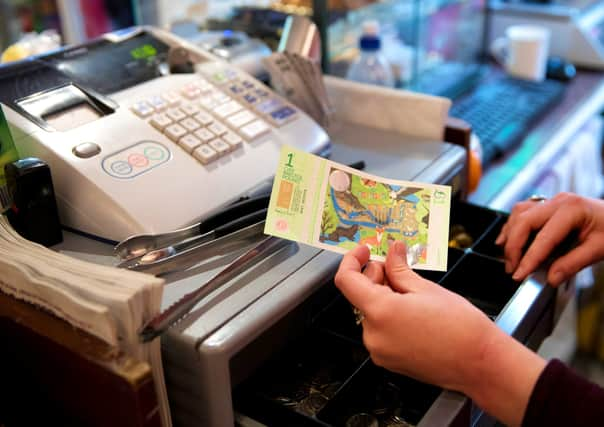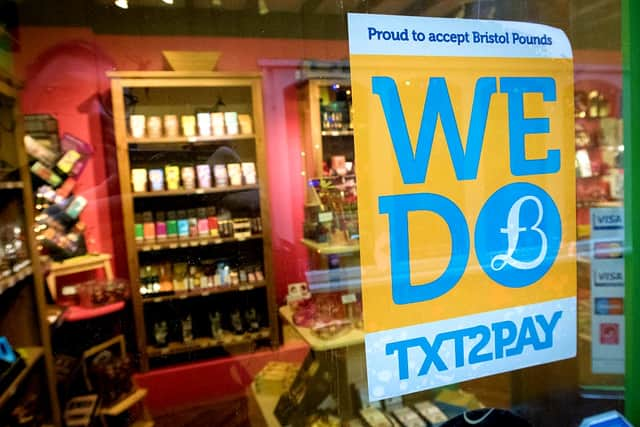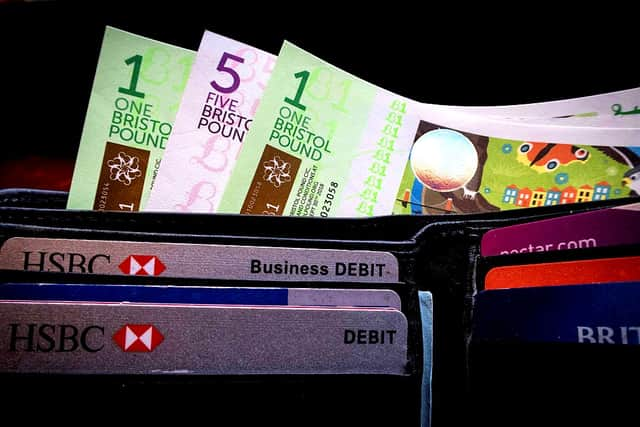End of the Bristol Pound: Why did it fail and what next?


Launched back in 2012, the Bristol Pound was a social, economic and environmental experiment designed to keep money in the city.
The colourful notes could be spent only in Bristol-based independent businesses and were a fancy addition to your wallet, emblazoned with vibrant nods to the city’s diverse landmarks and cycling culture.
Advertisement
Advertisement
Members could also use the ‘£B’ as an alternative to sterling to pay for train and bus rides, work carried out by tradespeople, council tax and even staff wages.
The scheme enjoyed its heyday in 2016, with over £1m in circulation forming part of a welcome shift that saw Bristol’s economy skyrocket to the fastest-growing outside London in the UK.
But the growth of cashless payments and cryptocurrencies would eventually bring about its decline, with the challenges of the pandemic dealing the final, fatal blow.


Advertisement
Advertisement
By September 2020, the currency was withdrawn from circulation and resigned to collector scrapbooks.
Similar schemes in Brixton, the Lake District, Exeter and other areas also eventually flopped.
James Durie, chief executive of the Bristol Chamber and Initiative at Business West, said: “We were very pleased to help support the Bristol Pound from early on, working with a number of campaigners and financial activists.
“At its peak, it was the most successful local currency in the UK, comprising a network of over 2,000 individuals and independent businesses who used digital and paper currency to trade in Bristol.
James Durie, chief executive of the Bristol Chamber and Initiative at Business West“It was the most successful local currency in the UK”
Advertisement
Advertisement
“This helped localise supply chains and keep money circulating around our city.
“The existence of this local currency, and what it represented, helped further drive thinking and an environment for innovation and change.
“New models of sustainable finance and business continue to be created and organisations like Bristol and Bath Regional Capital CIC, Bristol City Funds and Avon Mutual Bank have since been established, to name just a few examples.
What next?
Looking back,the Bristol Pound, which officially ceased to exist last month (September), might be looked on as an experiment.
Advertisement
Advertisement
And as with any experiment, the results have yielded their own learning opportunities, many of which have inspired the new kid on the block - Bristol Pay.
Diana Finch, who joined the Bristol Pound team when the currency began flailing in 2018, is at the forefront of the new project.
Run via an app, it will still allow members to spend in independent businesses but also operate a kind of ‘digital token’ scheme.
“When I joined Bristol Pound, we worked out that the city was losing millions in transaction charges and to corporate companies,” Diana told BristolWorld.
Advertisement
Advertisement
“When you shop at a major supermarket, we all know that money isn’t going back into Bristol.
“So of course we want to help people re-invest in the city, which will involve the money side of the app, but we wanted to do more to encourage and celebrate new community values.
“Therefore, the ‘non-money’ side will see users collect tokens for helping the city move towards pro-environmental and pro-social norms.
“So if you helped cut fuel emissions in the city by cycling 116 miles that month, you could log those miles as tokens which can be shared across social media, creating that buzz and a heartfelt drive to do good in the community.
Advertisement
Advertisement
“The wonderful thing about this is we would be able to count the tokens at city-level, inspiring and measuring positive behaviours that we should be shifting towards as a culture.”
Might there be scope to trade these tokens in for ‘rewards’, as already seen in some apps?
“For me,” Diana said, “it’s important that this doesn’t become a money-led incentive.
“Schemes like that often fail, as they become a financial transaction in the person’s mind which eventually leads them to asking, am I putting too much effort in here for what I’m getting back?
Advertisement
Advertisement
“We’d like to ‘gamify’ Bristol Pay instead, so you’d achieve an intrinsic reward for simply doing good.
“We don’t know what the new economy will look like, but it will change exponentially in the next 15 to 20 years.
“We need to be focusing less on growth, growth, growth - which has detrimental effects environmentally and on equality. “
Will the Bristol Pound return?
Asked if the paper notes would ever return, Diana replied: “We called it a currency but the paper money was, in effect, vouchers - similar to the way book tokens are used at participating stores.


Advertisement
Advertisement
“The majority of shoppers who used the paper money were from a certain background, often tourists who were more likely not to spend it all and tape it to the fridge when they got home.
“So it didn’t really achieve anything structural, it was ‘cute’ and about engagement, really - but it did get people thinking about shopping locally in a visual way.”
How to support business now
With Bristol Pay currently in development amid plans to launch next year, there are still ways residents can pitch in with efforts to resurrect the city’s economy post-Covid.
James added: “As a result of the pandemic, more and more businesses are moving away from cash in favour of electronic payments methods.
Advertisement
Advertisement
“Sadly, this shift has contributed to the demise of the Bristol Pound, but there are numerous ways our city’s local businesses continue to be supported.
“For those who wish to support local businesses from the comfort of their own homes there are a number of locally-based alternatives to the likes of Deliveroo and Ocado.
“An alternative to is the BARBI Bristol takeaway app, whereas Good Sixty provides an eco-bike grocery delivery service, connecting users with independent food and drink retailers and producers across the city.
“An upside of the pandemic for local businesses is that more and more of us are working from home and beginning to discover the local businesses on our doorstep.
Advertisement
Advertisement
“There are a number of shopping directories for each of Bristol’s vibrant neighbourhoods, and Bristol City Council has played its part by giving the green light to pedestrianisation of areas such as Cotham Hill, which is renowned locally for its small, independent scene.
“As champions of the Bristol Pound, we are said to see it go.
“But we can be confident that with more and more support coming onboard for local businesses from the BIDs, residents and visitors will continue to shop local.”